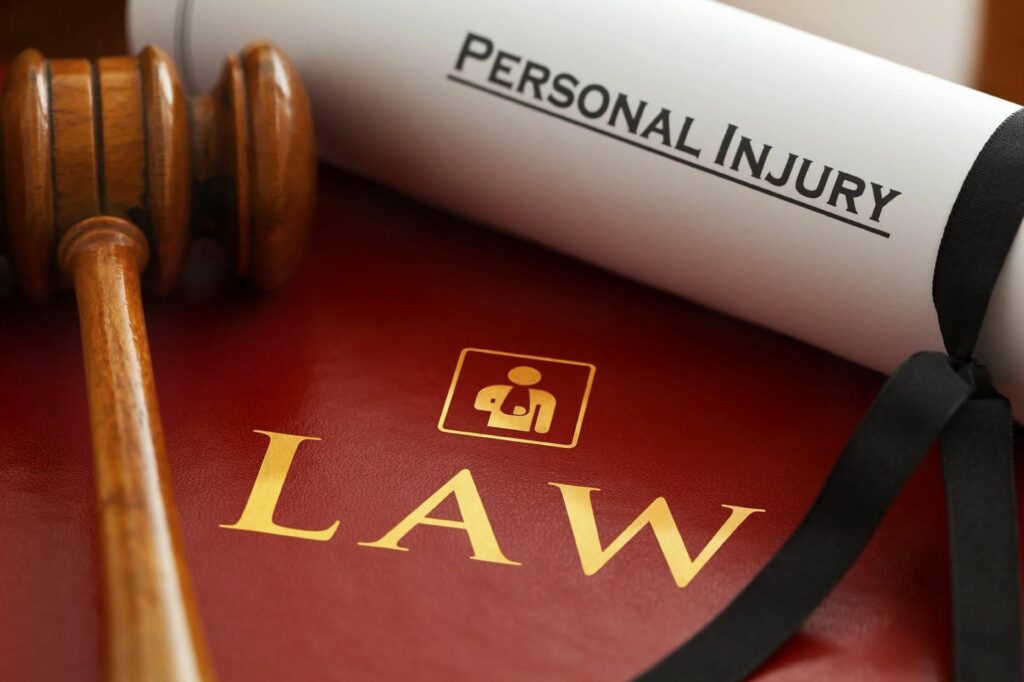Workers’ Comp California: The Ultimate Guide

California law requires that employers provide workers’ compensation benefits for any employee who was injured on the job. Benefits include medical care, temporary disability benefits and supplemental job placement benefits. The injury must be covered even if the person injured was at fault for causing the accident and injury. There are, however, some boundaries to the scope of injuries that workers’ compensation will cover. Learn below what types of injuries are covered by workers’ compensation, and contact a dedicated Southern California workers’ compensation attorney if you need help with a workers’ compensation claim on behalf of yourself or a deceased family member.
Related: How Does Workers’ Comp Work in California?
WORK-RELATED INJURIES ONLY
In order to be compensated for an injury, the injury or illness must have been “work-related.” The injury must have arisen out of the employment and have occurred during the course of employment. This means that the accident or exposure must have occurred in the work environment.
Events like an accident at work provide clear-cut cases for workers’ compensation coverage, but not every case is as straightforward. It may be more difficult to prove an accident was work-related if it occurred while the employee was doing something work-related while away from the office. Additionally, injuries or illnesses that develop over time can be more difficult to prove.
Denial of Workers’ Compensation Claims
The insurance company of your employer may deny your claim if they believe any of the following:
- There is not sufficient evidence of your injury.
- The injury can’t be proven to be work-related.
- The injury arose from a different job.
- The injury wasn’t enough to require medical treatment.
- You are able to keep working without interruption.
Has your employer denied your workers’ compensation claim? Get in touch with Invictus Law today to discuss your options!
EXAMPLE OF WORKMANS COMP HEARING
If you have been injured on the job, and that claim for workers’ comp was denied, you have a legal right to appeal this decision. However, you should be prepared for a long process. You may have to attend several proceedings and settlement negotiations. Along with that, you could be required to submit to an independent medical exam.
In some cases, you will need to attend a formal workers’ comp hearing. At this proceeding, it might be your only chance to present your case to the judge to see if the claim can be validated. This hearing could last for a few hours. You will want to present all your evidence to the judge, including medical bills, evidence of lost wages, and employment records.
While you are there, you will see several people in attendance. In almost all hearings, your legal team and the lawyers from the insurance company will be in attendance. Some witnesses and others may attend the hearing as well.
For you, it is important to address the judge with respect and present all the evidence for your claims. If you are worried about your hearing, make sure to consult with your experienced attorney to properly prepare for this process.
HOW DOES WORKERS COMP WORK IN CALIFORNIA
In the state of California, workers’ comp is used to cover injuries that an employee has suffered on the job. For those employees injured in an occupational accident, all those medical expenses and lost wages could be covered under workers’ comp. However, you need to file in a timely manner to receive any compensation.
After you have been injured, you need to report it to your employer. Every company will have procedures for reporting an occupational accident. If the accident is not an emergency, then you could be referred to a designated specialist for medical treatment. All employees must report a job accident within 30 days of the incident. When you fail to report, then you could lose all your financial benefits.
Once you have received appropriate medical care, you must fill out a form and return it to your employer. At this stage, the employer gives the form to the workers’ comp insurance company. You can expect to fill out several forms during this process, but it is your responsibility to make sure they are all received by the deadline.
CA WORKERS COMP
There are some situations when the injured person’s employer does not pay for workers’ comp insurance. In those situations, California’s Uninsured Employer’s Benefit Trust Fund is available to provide benefit to an injured employee. Not all businesses play by the rules, and they may not have adequate insurance for their workers, which is illegal in the state. When that happens, the UEBTF will step in and provide coverage for their workers.
Unfortunately, workers’ comp can be denied for workers in the state. You must be an eligible employee for a company, and the injury needs to fit in certain criteria to file a claim.
If you are concerned about your workers’ comp claim in California, you need to speak with an experienced attorney to handle your case.
INJURIES THAT ARE NOT COVERED
There are specific categories of injuries that are not eligible for workers’ compensation. These injuries are not considered “work-related.” Workers are not eligible for compensation if the injury occurred while:
- The worker was violating a workplace safety rule by, for example, drinking on the job.
- The worker was on a lunch break.
- The worker was attending a company function such as a corporate picnic or holiday party.
- The worker was commuting to or from the workplace, although accidents on business trips are often covered.
These cases are not always clear-cut. If your workers’ compensation claim is denied as being outside the scope of employment or otherwise not work-related, a skilled workers’ compensation lawyer may be able to help you get coverage.
TYPES OF INJURIES COVERED
Various types of workplace injury are compensable under California law. Types of covered workplace injuries include:
- Specific injuries. The most straightforward cases involve a specific workplace accident, such as being hit by a flying piece of equipment, cutting yourself on something sharp, or falling down the stairs, which lead to injuries like broken bones or head trauma.
- Repetitive motion and overuse injuries. Workers’ compensation will cover repetitive strain or stress injuries that result from people performing the same task repeatedly over a long period of time. Many different types of jobs can lead to these sorts of injuries, from factory workers with back pain or tendonitis to desk workers developing carpal tunnel syndrome.
- Occupational illnesses and harmful exposure. Workers’ compensation will cover any illnesses that result from employment, even if they develop over time. For example, workers’ compensation will cover black lung from exposure to coal dust or some other condition caused by exposure to a toxic chemical in the workplace.
- Psychiatric injuries. California workers’ compensation does cover emotional harm caused by stressful conditions at work. These can be trickier cases to prove, and the worker must demonstrate that the psychological condition was at least 51% caused by the job as opposed to external stressors such as a recent divorce. California workers’ compensation also covers emotional distress caused by a related physical injury.
Related: Injured at Work Then Fired? Here’s What You Need to Do
CALIFORNIA WORKERS’ COMPENSATION BENEFITS

Workers who become injured in the workplace are entitled to different benefits per the state of California. Unlike other state benefits like unemployment, workers’ compensation payments, and other non-cash benefits are tax-exempt. Some of the benefits you may be eligible to receive are:
Medical Treatment
California’s workers’ compensation programs cover the cost of medical treatments and their expenses, including:
- Medical evaluations.
- Treatments.
- Surgeries.
- Prescription medication.
- Medical aid devices.
- Transportation.
Workers in California who are receiving workers’ compensation benefits are entitled to reimbursement for travel expenses to and from medical appointments at 54 cents per mile.
Temporary Disability
If you become injured in the workplace, California’s workman’s comp program allows you to collect temporary disability payments. This benefit gets paid out during the time you have to take off work due to injury. The payments are based on two-thirds of your average weekly wage but are subject to weekly maximums.
Temporary disability payments can be collected for up to 104 weeks over five years; benefits are paid out for up to 240 weeks if you have any of these conditions:
- Severe burns.
- Pulmonary fibrosis.
- Pulmonary HIV.
- Amputation.
- Chronic lung disease.
- Specific eye injuries.
Permanent Disability
A worker may be eligible to receive permanent disability payments if the injury they sustained affects their ability to keep working at their current job or stay in the job market. The benefits of permanent disability vary based on factors like the worker’s age and occupation and restrictions that were put into place by a medical professional. Depending on those aspects, permanent disability payments can continue anywhere between four weeks and 14 years.
Vocational Retraining
Also known as the Supplemental Job Displacement Benefit, vocational retraining is available to workers who can not return to their former job and whose employer didn’t offer a modified or alternative employment option. This retraining benefit comes in the form of a $6,000 voucher that can be used for educational retraining from state-approved schools. The voucher is valid for tuition, books, and fees relating to the courses.
Life Pension
Workers who become severely disabled after a workplace injury can be eligible for life pension payments. The benefit is a small payment each week in addition to the permanent disability check. Life pension payments can be received for the rest of your life, unlike most other workers’ compensation benefits.
Death Benefits
Death benefits may be paid out to the spouse or dependents of a worker who lost their life due to a work-related activity. Included in this payment is the covering of burial expenses.
Benefits Outside of Workers’ Compensation
Depending on your workers’ compensation claim and other related injuries, you may be entitled to certain other benefits outside of the workman’s comp program. These benefits can include Social Security disability (SSI), state disability insurance (SDI), and court settlements from a lawsuit brought up against a third party.
HOW TO FILE A CALIFORNIA WORKERS’ COMPENSATION CLAIM
The first thing that is essential to do after suffering an injury or illness that is work-related is to notify your employer immediately. If it is a medical emergency, seek treatment right away, and then inform your employer as soon as possible. If your injury does not get reported within 30 days, you may lose the right to collect workman’s compensation benefits.
Filing the Claim
Within one day after reporting the injury or illness, you should receive a workers’ compensation claim form (Form DWC-1) from your employer, as well as information regarding your rights and eligibility for the benefits. After filling out this form and returning it to your employer, they will submit it to their insurance company for review.
After the Claim
Once your claim is filed with your employer’s insurance company, they must authorize the payment for your medical expenses while they investigate your workers’ compensation claim for validity. Until a decision is made, they are responsible for paying for up to $10,000 in medical bills.
If your injury or illness causes you to miss work, you should begin receiving temporary disability payments within 14 days after the incident.
If your claim isn’t denied within 90 days, it becomes automatically approved.
Adjudication of Claim
After your claim is filed with your employer, you will want to file an Application for Adjudication of Claim (Form WCAB-1) with the Workers’ Compensation Appeals Board (WCAB). This form allows you to resolve any disputes about your benefits later on down the road, like if your medical condition changes and you need additional help. Your Adjudication of Claim form must be filed within a year of your injury, the last day of medical benefits provided by your employer, or the last day of temporary disability benefits.
Suppose your employer or their insurance company advanced payments for your medical expenses while knowing that it could be related to a workers’ compensation claim. In that case, you may be able to dispute benefits as long as Form WCAB-1 is filed within five years of the injury.
Workers’ Compensation Deadlines
An experienced workers’ compensation attorney can help make sure that everything you need is filed on time so that you don’t miss any deadlines that can affect your case’s outcome. Workman’s comp law can be complicated, and some circumstances may excuse you for missing deadlines or extend the time you have to file.
Having a trustworthy law firm by your side allows you to navigate workers’ compensation rules and benefits with ease; they can also represent you in the case of an appeal if your employer denies your claim.
Related: What Should You Expect at a Workers’ Comp Deposition?
BOARD-CERTIFIED CALIFORNIA WORKERS’ COMPENSATION SPECIALIST

If you have a claim for workers’ compensation and want to make sure you get the maximum available coverage, call Invictus Law today at (888) 996-7552, and speak with an experienced California workers’ compensation attorney to evaluate your claims.

